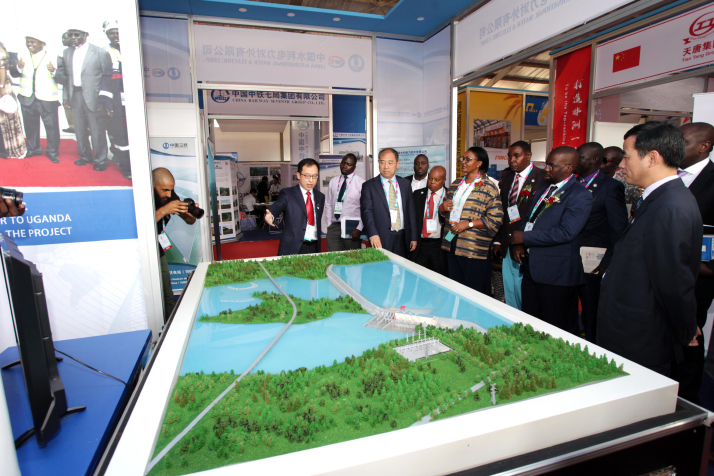
Diplomatic Efforts Over 70 Years
The PRC’s history of dialogue, cooperation and multilateralism
This year marks the 70th anniversary of the founding of the People’s Republic of China (PRC), a period in which the world has changed rapidly. China has played a significant role in that change through international relations and global governance. It has moved from standing up to opening up to growing rich and strong.
China’s relations with the rest of the world have seen historic changes over the past 70 years on its road to becoming the world’s second largest economy. Its prosperity, enhanced national strength and restoration to preeminence on the world stage have given the nation the ability to defend both its sovereignty and fundamental interests. Nowhere is this more apparent than in its diplomatic efforts. Since 1949, the goals of the PRC’s foreign policy have been consistent: safeguarding the country’s development environment while supporting both global peace and development efforts.

Basis of foreign policy
In reviewing China’s diplomacy, it is important to understand the role that it has played in the modern international relations system. Much like any other great power, it is crucial to comprehend that China’s history, national interests, international responsibilities and current role in global affairs all color the nation’s foreign policy and have a significant impact on an ever-evolving international system of governance.
During the past 70 years, China has moved from international isolation to become one of the world’s major powers. After the founding of the PRC, domestic weakness and external vulnerability came to an end. Under the leadership of the Communist Party of China (CPC), the nation sought to regain the respect and dignity of being a great nation that was lost after a century of humiliation, one that saw external powers engage in hegemony in both China and East Asia. That experience of victimization at the hands of Western and Japanese powers was a critically influential and the formative basis for China’s foreign policy, which remains a cornerstone of contemporary China’s approach to foreign relations.
If the West is at all interested in understanding what drives China’s foreign relations and diplomatic efforts, it is essential to comprehend the impact that a century of hegemonic victimization from 1840-1949 had on the nation. It provides insight into what has driven much of China’s foreign policy for the past 70 years. Simply stated, to grasp why China is concerned with issues such as sovereignty, national reunification and territorial integrity, look no further than the humiliations of the 19th and 20th centuries. The restoration of China as powerful and a globally preeminent nation has allowed it, much like other great powers, to assert its national interests.
Its interests have become of increasing concern for those in the West who are more than happy to ratchet up differences of opinion into full-blown trade wars and calls for combating the so-called “China threat.” Nowhere is this more evident than with issues that the West believes are international in scope, but are central to China’s view of sovereignty. Western support for the independence of Taiwan or Tibet—particularly from the countries that were formerly invaders and colonizers of China—is perceived to be both rank hypocrisy and an encroachment on China’s inviolable core interests.
To have a general understanding of 70 years of Chinese foreign policy, one only needs to review its objectives, guiding principles and strategies. China defines these as follows: domestic political stability, sovereign security, territorial integrity and national reunification, and sustainable economic and social development. These objectives have been consistent over the past seven decades.
The history of the PRC’s foreign relations and diplomacy can best be understood through two periods: before and after reform and opening up that began in 1978. For the first 30 years (1949-78), the focus of China’s foreign policy and diplomatic efforts was to oppose the threats posed by the two superpowers, the consolidation and enhancement of the nation’s independence, and the safeguarding of the country’s sovereignty and territorial integrity. Since 1978, China has gradually reoriented its foreign policy and diplomatic efforts by creating an external environment that has been conducive to both its domestic economic development and its return to prominence in international relations.
Since reform and opening up began, China’s role in foreign affairs has moved from one of relative isolation within East Asia to one of the world’s two largest economic powers with a global reach. Backed by both expanding economic and political power, this global reach has allowed China to extend its influence virtually everywhere and not only to demonstrate its diplomatic intentions as a peaceful and responsible power, but also to both advance and foster myriad development opportunities for a number of countries.
A new era
Under President Xi Jinping, China’s diplomacy has expanded on a global scale as the nation has restored its place as a major country. China has invested heavily in global infrastructure and governance, worked hard to further economic integration and invested in trade and infrastructure in emerging economies, which is aimed at assuring both stability and regional security.
As China enters the new era, its diplomacy will likely undergo some changes in order to serve the new mission envisioned by Xi. China will act more decisively since its strength and economic size provide it with the ability to handle conditions using a variety of approaches to deal with evolving international issues and events. China’s 70-year commitment to peaceful development certainly warrants praise. Its strong investment in pursuing diplomatic and international development efforts as a logical win-win solution will be ever more important as the world grapples with issues ranging from international peace, security, development and economic growth to climate change.
During the past 70 years, the world order has changed greatly and China is now a significant player on the international stage. Under the leadership of the CPC, China’s framework governing its diplomatic strategy has been historically consistent. As China returns to global prominence, both the scale and context of China’s diplomatic activities have significantly increased, owing in large part to Xi’s emphasis on the nation’s contribution to addressing global political, economic and social concerns. Reviewing the 70-year history of PRC’s diplomacy and understanding where China was, where it is today and where it may likely go in the future are of great significance as the nation takes on the burden of even greater international responsibilities in an often uncertain and an ever-changing international system.
The author is chair of the Department of Political Science and Geography and professor of political science at the University of Texas at San Antonio
 Facebook
Facebook
 Twitter
Twitter
 Linkedin
Linkedin
 Google +
Google +










